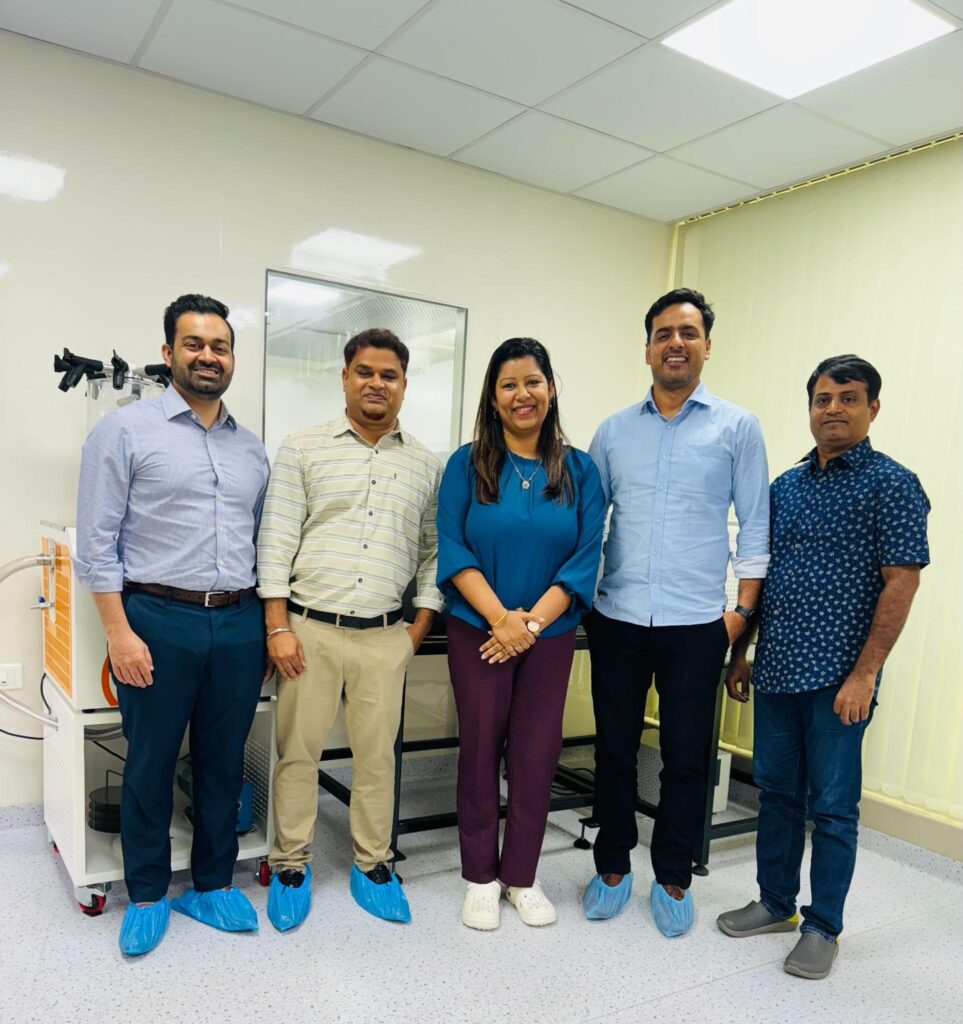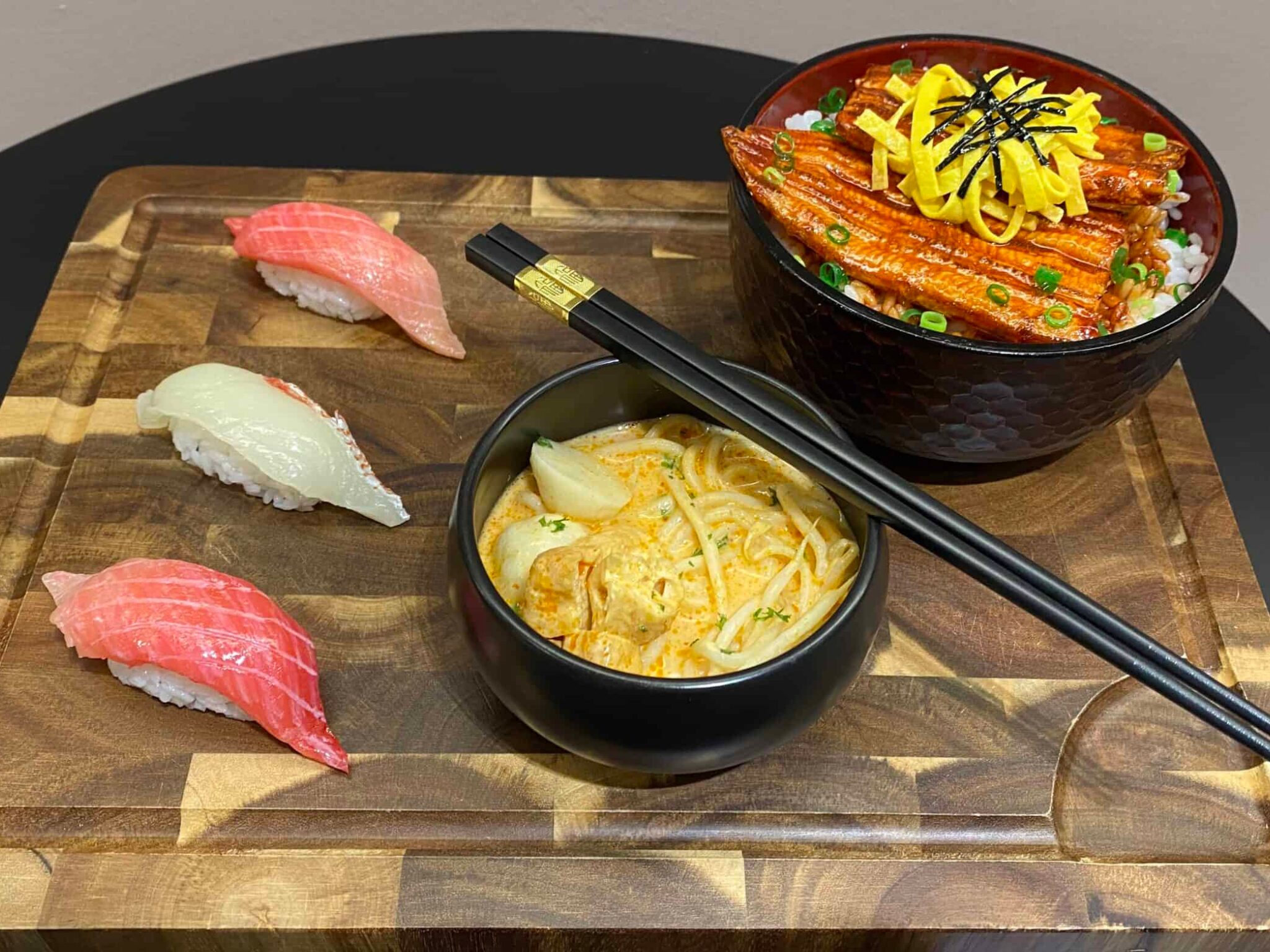5 Mins Read
Singapore’s Umami Bioworks has partnered with two Indian entities as it aims to advance R&D and reach commercial-scale production for its cultivated seafood.
Months after its merger with Shiok Meats, Umami Bioworks is looking to advance the scale-up efforts for its cultivated seafood through two collaborations with organisations in India.
The Singapore-based startup has teamed up with the IKP Knowledge Park’s newly established Centre for Smart Protein and Sustainable Material Innovation in Bengaluru, India, which will be aimed at accelerating research and scalability for its cultivated seafood.
Additionally, it is set to collaborate with the Sathyabama Institute of Science and Technology in Chennai to set up an R&D facility at the university’s campus.
“India has a wealth of experienced talent in biomanufacturing and steel production. We saw this combination as among the best-in-class globally, and given the relative proximity to Singapore, it was an obvious choice,” Mihir Pershad, founder and CEO of Umami Bioworks, told Green Queen.
IKP partnership to validate and transfer Umami Bioworks’ tech

As part of the incubation collaboration with the IKP’s alternative protein centre, Umami Bioworks’ India-based team will lead the engineering and validation of its plug-and-play manufacturing hardware, supporting the tech transfer from the demonstration line to customer sites.
“IKP provides a hub for our team to work on this scale-up R&D, including meeting and lab space, and a facilitator to help us connect with the supply chain partners that will enable us to deliver a complete production solution,” explained Pershad.
“The partnership is initially scoped for a year, with opportunities to extend and expand over time. Our end goal is to successfully deliver a production-ready manufacturing system, led by our team in India, that is ready for deployment to customer sites around the world,” he added.
“We are excited about the novel technology platform that they bring to our community of entrepreneurs and founders in their pursuit of growth in the smart protein sector,” IKP Knowledge Park chairman and CEO Deepanwita Chattopadhyay said of Umami Bioworks. “This collaboration will not only accelerate Umami’s growth in India, but will also propel the smart protein ecosystem that we are building in the country.”
The Centre for Smart Protein and Sustainable Material Innovation was established in May, born out of an MoU between IKP Knowledge Park and alternative protein think tank the Good Food Institute (GFI) India. The facility aims to support startups with incubation and product development via access to state-of-the-art equipment, and expert mentorship on the technical, IP, regulatory, marketing and business strategy domains.
“This landmark partnership between Umami Bioworks and IKP’s newly launched centre is a prime example of how India’s booming biotech industry and growing smart protein ecosystem are attracting global players,” said Aiyanna Belliappa, senior innovation and entrepreneurship specialist at GFI India.
“We are confident that this collaboration will pave the way for further innovation and investment in India, ultimately contributing to a safe, secure, and just future for food.”
South India leads the country’s cultivated seafood scene

The partnership comes the same week researchers at the Sathyabama Institute of Science and Technology developed prototypes of cultivated seafood using milkfish, grouper, red snapper and tilapia cells. The university is also partnering Umami Bioworks, with Sheela Rani, the institute’s director, telling The New Indian Express that the startup will help “set up a full-fledged facility at the campus to develop more cultures and push for commercial-scale production”.
“We are establishing a collaboration with Sathyabama University to expand our pipeline of marine species cell lines in partnership with their newly established National Facility for Coastal and Marine Research,” Pershad told Green Queen.
“We will be doing collaborative research to establish cell lines from new fish, crustaceans, and other species. This work will include seeking [a] deeper understanding of the fundamental biology of these species to enable first-ever cell lines to be established for some species,” he added.
Sathyabama University has earned authentication from the National Bureau of Fish Genetic Resources, meaning its cultivated meat has no recombinant DNA. It will now pursue statutory approvals from the National Biodiversity Authority, the environment ministry, and the Food Safety and Standards Authority of India (FSSAI).
The latter, in fact, has been working to establish a regulatory framework for cultivated meat and seafood companies to file dossiers for approval. In a regulatory conclave held in New Delhi in April, the FSSAI confirmed its willingness to work with the government’s Department of Biotechnology and Biotechnology Industry Research Assistance Council to set up a framework.
“The FSSAI can institute a working group on cultivated meat. This working group will be able to recommend strategic priorities for cultivated meat (and inputs such as culture media and cell lines) for the FSSAI to consider for regulatory interventions and a strategy for a dynamic regulatory framework,” wrote Astha Gaur, regulatory policy specialist at GFI India. “Ultimately, instituting a scientific panel on novel smart proteins would ensure progressive rule-making and risk management.”
Umami Bioworks’ partnerships symbolise the fast-growing cultivated meat sector in South India. In January, the ICAR-Central Marine Fisheries Research Institute (based in Kochi, Kerela) inked a deal with biotech startup Neat Meatt to develop cultivated fish.
Having raised $2.4M to date, Umami Bioworks has previously outlined its plans of submitting regulatory dossiers in several countries this year. Its merger with Shiok Meats will see it bring cultivated unagi (eel) and white fish (grouper) to the market via hybrid applications.
“We are now in active review with the Singapore Food Agency, including regular engagements to review data and address any questions that arise during their review,” revealed Pershad. “We are also making rapid progress in two other geographies and anticipate being able to share an update in the near future.”



